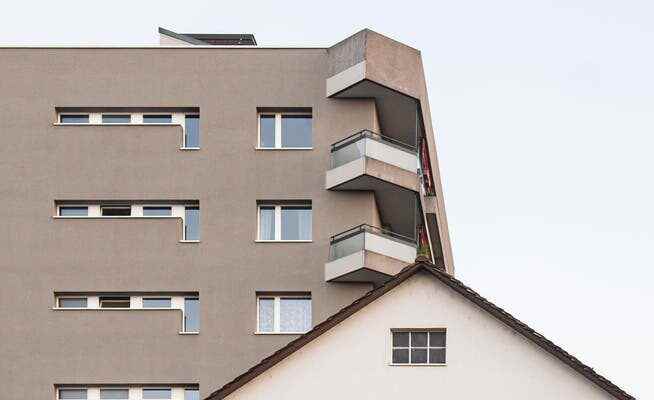With the normalization of interest rates, the Swiss home market has become a little more liquid again. People no longer buy everything and not at any price. This is no reason to panic, but good news.
In the meantime, the number of condominiums advertised has increased significantly, although no more construction is taking place.
Not so long ago, buying a home was virtually impossible. Almost no objects came onto the market. And when there were offers, the rush of prospective buyers was huge and the chance of winning the bid was minimal. Conversely, there were hardly any slow sellers on the sales market. Even mediocre locations and properties were sold in just a few weeks and at top prices.
“The main thing is that you own your own home,” seemed to be the motto of many buyers, which was quite rational. Because with mortgage interest rates close to zero, buying a home was no longer just an emotional decision; it was simply more financially advantageous to buy than to rent.
People no longer buy at any price
In the meantime, however, the monetary advantage of home ownership has vanished into thin air. With a mortgage with a term of five years and an 80% loan-to-value ratio, the living costs of a home in Zurich are now at the level of a comparable rental apartment. In expensive locations, renting is even slightly cheaper than buying.
Accordingly, buyers have now become significantly more selective, as the Zürcher Kantonalbank (ZKB) writes in its latest real estate monitor. According to the bank, this is shown, among other things, by the fact that the number of dossier inquiries per sales advertisement on Homegate has decreased significantly – for condominiums from more than fifty six months ago to less than forty.
It can also be seen that individual properties for sale no longer sell when advertised for the first time – be it due to excessive asking prices or unattractive locations. A second attempt is needed more and more often. According to the ZKB, some advertisements also appear with a lower asking price the second time they are advertised, which promotes sales, but sends the signal that prices are going down.
More supply on the market
Something has also happened in terms of supply: More is not being built, but the number of advertised condominiums has increased significantly. With the elimination of negative interest, some property owners seem to find it easier to part with their property, writes the ZKB. With individual sellers, there may be a desire to not only see the sometimes colossal increase in value of their property on paper, but also to feel it in their own wallets.
Discussions with various brokers largely confirm this picture. However, Claude Ginesta from the company of the same name is not convinced that there are actually more homes on the market: “What I have noticed is that the marketing period has increased. This alone means that more properties are advertised on one platform at the same time.”
In his estimation, multi-family houses in particular are increasingly for sale, since the prices there correlate practically one-to-one with the mortgage interest rates: “The sellers now want to profit.” But the price pressure is already noticeable. According to Ginesta, buyers are no longer willing to accept returns of less than 3 percent.
So-called buy-to-let properties, i.e. rented condominiums, fall into the same category as apartment buildings. Many hobby landlords are now realizing that their business model no longer works with higher financing costs. If you don’t want to keep your object for later personal use, you can now try to sell it.
Soft landing expected
But despite higher supply and falling demand: According to Ginesta, Switzerland is still miles away from an oversupply of homes and a tipping of the market. The excess demand is now simply not quite as extreme.
The ZKB sees it the same way. The bank therefore also assumes that prices will continue to rise – simply a little less strongly than before. Instead of 9.3 percent as in 2021 or 6 percent as in the current year, the bank’s real estate economists expect a price increase of 2 percent for 2023.
Such a cool-down would not only be no drama at all, it would be most welcome. Because property prices have risen much more strongly than, for example, incomes in recent years – first because of falling interest rates and then also because of Corona. Only if house prices come under some pressure will more “normal earners” be able to afford their own homes again in the future.
